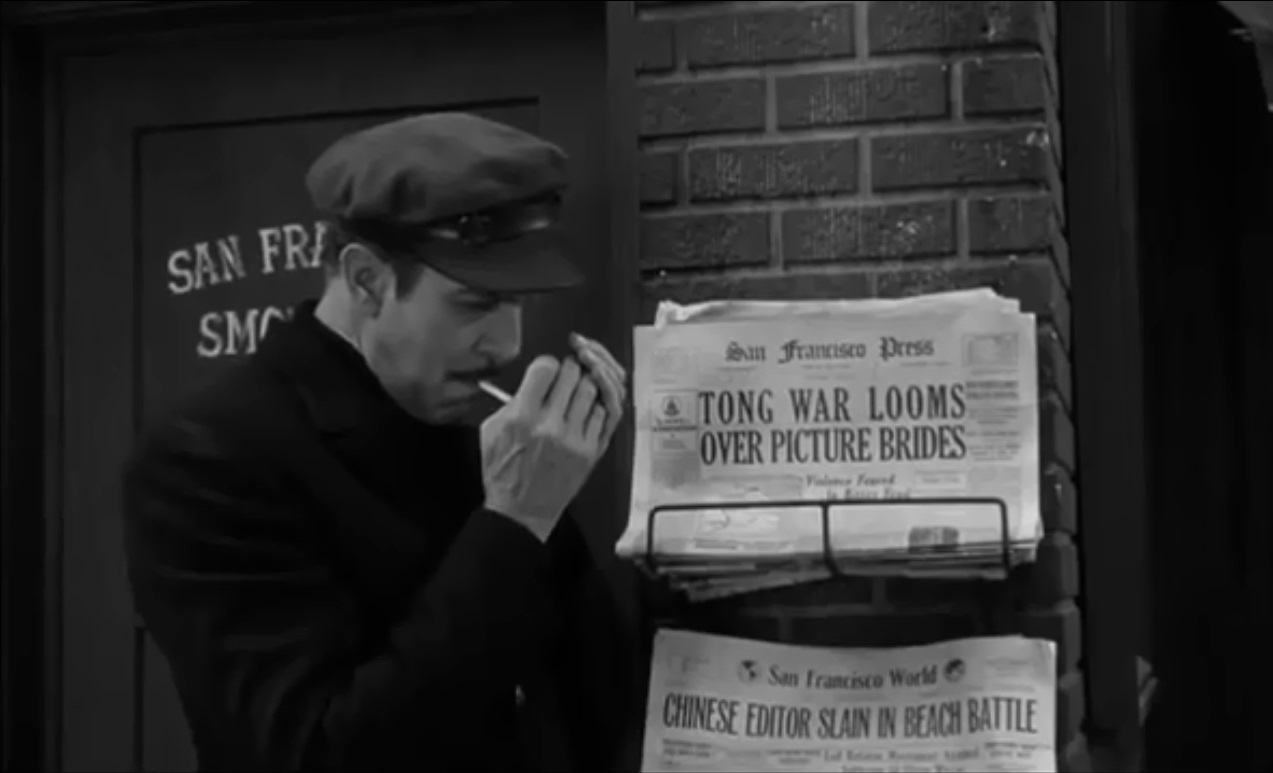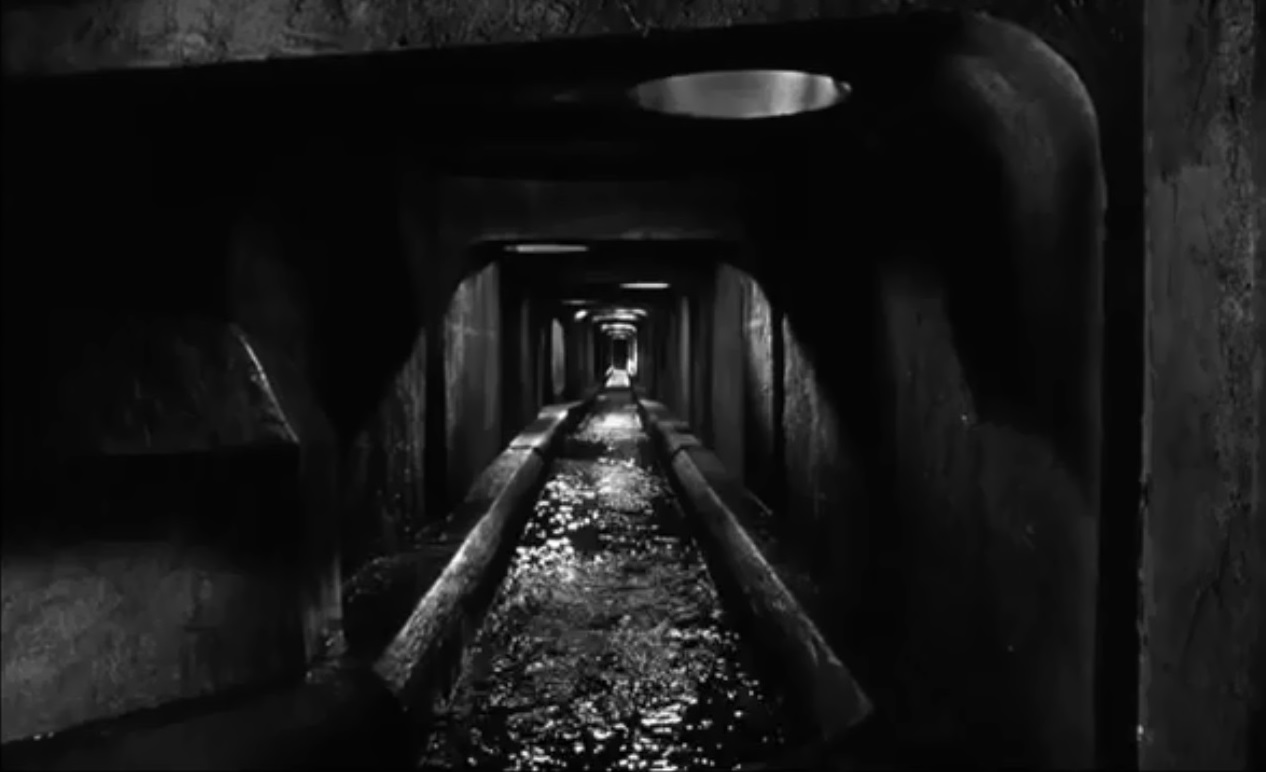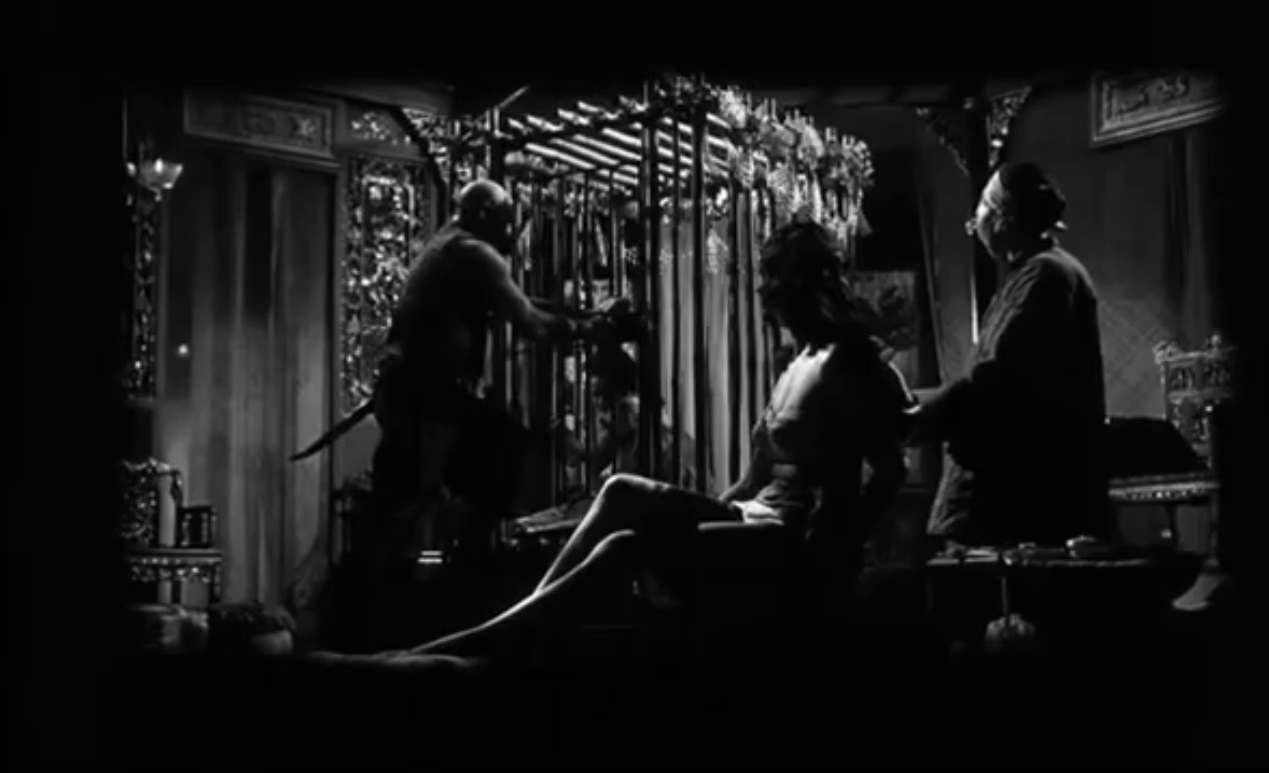Confessions of an Opium Eater

The venerable conceit
of poet and emperor as repining mistress and neglectful lover, to which
something new has been added, “the human auctions of Chinatown.”
A hundred years
after De Quincey, a descendant of his in the realm of
Lon Chaney and Tod Browning. “Devil
and drunkard, ghost and poet was I.” A job of
work in a Tong war.
“Confucius
says the superior man blames himself, the inferior man blames others, and I am
most inferior so I decided to wear my shirt.”
“Your shirt? Chain mail.”
“Mm, made
in Peking by Chen Hop. Very soft and very comforting, seeing
that no knife can penetrate it.”
Out of De Quincey by the author of Russ Meyer’s Fanny Hill. “Sometimes very hard to tell, who is mad
and who is not... I am not Western woman, I was born
on bumboat on river near Soochow. I
have no need to wear false face.”
“Somehow I
think you wear more faces than there are stars in a gutter after the rain.”
“It’s
been a long time, since I have seen myself in gutter.”
“Eh, you
have a gilt mirror now, I dare say. Still, I think maybe I’d like ya better the other way.”
“Perhaps
you will find out. But remember, when the dragon
banners fall, and the Tong war begins, sometimes both man and the heavens find
their last reflections together in those gutters.”

An opium den. “From the dreams of the dark idol monstrous
phenomena move endlessly forward, wild, barbarous, capricious, into the great yawning
darkness, to be fixed for centuries in secret rooms...”
Cf. Dmytryk’s Murder, My Sweet.
“I can buy
an army when I go back to China, me, born on a Soochow
bumboat! I will rule over a province, I will sit at
the foot of the emperor!”
Jonathan
Rosenbaum (Chicago Reader), “most
bizarre, beautiful and poetic”. TV Guide, “bizarre little drug
adventure”. Halliwell’s
Film Guide, “absurd melodrama”, citing
the Monthly Film Bulletin, “has
to be seen to be believed.”

The Phantom
Gunslinger
The silent film
is admired so much by Zugsmith in The Phantom Gunslinger that, as far as
possible, he treats it as one, taking a cue from Jacques Tourneur’s The
Comedy of Terrors to film whole sequences in the speeded-up form by which
the art was known in its earliest revivals. His cast are all able, but in the
lead he has an actor of genius who understands the style completely, who speaks
the language fluently, whose every pratfall and gesture owes nothing to Lloyd
and Keaton and Chaplin that isn’t the genuine article, and this comic
actor is Troy Donahue.
The blond
bridegroom of Yucca Flats is shot in the steeple at his own wedding, and rises
to Heaven on a cloud. God sends him back, he’s killed in a gunfight with
the marauders, rises on a cloud, is sent back. The town is renamed Cold Steele,
he climbs out of his own open grave during the funeral, stumbling as he does
so, and takes on the varmints, one of whom is a girl in disguise (Elizabeth
Campbell).
By way of the
Chow En Lie Rapid Clean laundry (its Instant Exit is the front window), they
all wind up in Hell, but he and his bride (Sabrina) and the girl are blasted
out, rise to Heaven (the girl astride her own cloud like a broncobuster), and
are sent back to Earth for the last time, to the sound of the Hallelujah
Chorus.
Emilio Fernandez
as the sheriff watches the first murder through a spyglass, dashes to his horse
and falls off as it rears. Jose Rene Ruiz deflects the new sheriff’s aim
with his paddle ball during the gunfight, and bullets ricochet on various iron
articles until all three participants are dead. Pivoting on one foot stuck in a
cake, the phantom gunslinger fells the villains one by one with his extended
leg at the saloon, or fends off flying lead with a frying pan in each hand. All
of this in fast-motion sequences by Gabriel Figueroa.